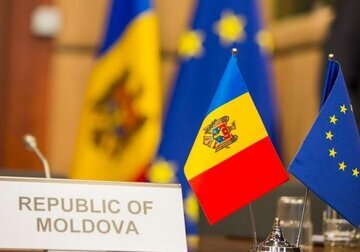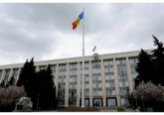
Moldova will seek from the European Union a permanent liberalization of its fruit exports
The Economic Council under the Prime Minister reported this. According to the report, the Moldovan authorities will start a dialog with the EU on increasing quotas for imports from the EU in line with the Association Agreement and the Deep and Comprehensive Free Trade Agreement (DCFTA). It is stressed that further trade liberalization with the EU may have both benefits and consequences for some sectors of the Moldovan economy. For example, Moldovan producers of poultry, pork and dairy products may find it difficult to compete with imports from the EU, which benefit from advanced production standards and economies of scale. Economic Development and Digitalization Minister Dumitru Alaiba and Agriculture and Food Industry Minister Ludmila Catlabuga discussed this topic with members of the Economic Council under the Prime Minister, whose activity is closely related to this topic, representatives of the sectors of processing and production of poultry, pork and dairy products, as well as fruit exporters to EU countries. The event was attended by representatives of professional associations involved in trade with the EU, which are likely to be affected by the expansion of trade liberalization with the EU. In this context, Dumitru Alaiba said that an important aspect of the negotiations with the EU will be to achieve a permanent liberalization of Moldovan fruit exports, such as plums, apples and grapes, which will strengthen their access to the European market. Exporters welcomed the initiative to expand quotas and remove trade barriers, stressing that this will contribute to increasing production and attracting more investments in agriculture. At the same time, meat and dairy producers expressed concern about the consequences of competition with European producers, calling for security measures and state support to maintain their competitiveness. Dumitru Alaiba reiterated the government's commitment to balancing increased trade with the EU with protecting the interests of local industry. “It is very important that we capitalize on the opportunities offered by the Association Agreement/DCFTA, but at the same time we need to be mindful of the consequences for our producers. We will continue our dialogue with the EU to find solutions to support both exporters and the sectors of the economy that may be affected by these changes,” said the Minister of Economic Development and Digitalization. The Association Agreement between the European Union and Moldova, signed in 2014 and entered into force in 2016, created the Deep and Comprehensive Free Trade Area (DCFTA), which gradually removes customs duties and trade barriers, facilitating access of Moldovan products to the EU market. For some agricultural products, such as grapes, apples and plums, annual tariff quotas have been established to allow duty-free exports. For example, the quota for apples is 40 thousand tons per year. In May 2024, the EU extended trade liberalization measures with Moldova until 2025, allowing exports of products such as grapes, tomatoes and cherries without duties and quantitative restrictions. Negotiations with European partners will continue and the Moldovan authorities aim to obtain the most favorable conditions for local producers, thus strengthening Moldova's position on the European market. // 17.02.2025 - InfoMarket.







